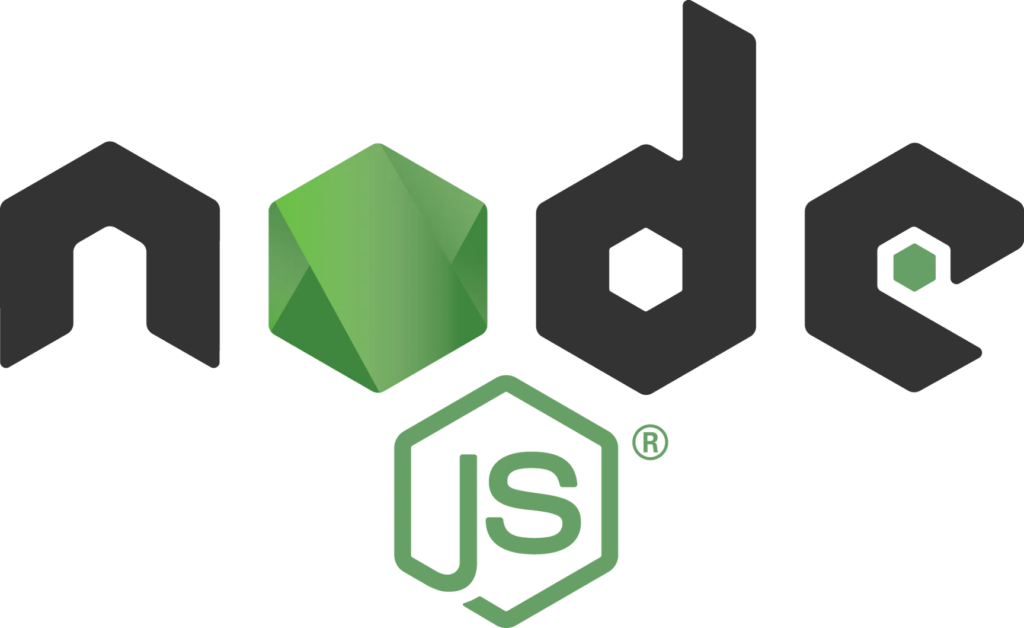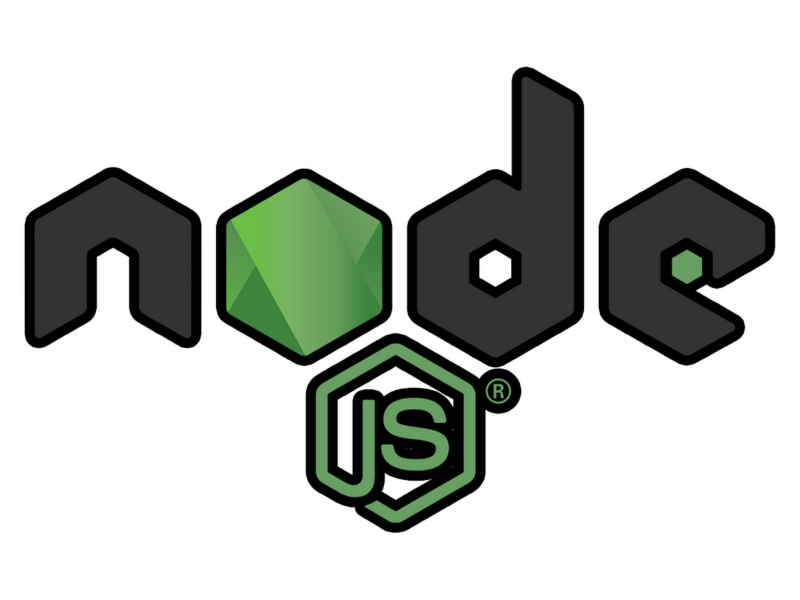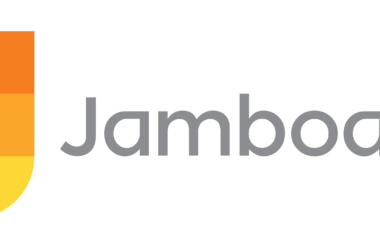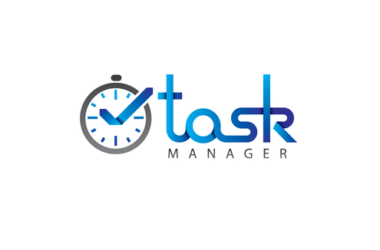In the ever-evolving landscape of web development, choosing the right runtime environment is paramount. Node.js, renowned for its speed and flexibility, has long been a go-to choice for developers. However, the tech world continually innovates, and developers often find themselves on the hunt for alternatives that can address specific requirements. In this comprehensive guide, we explore several Nodejs alternatives that have emerged as strong contenders for various use cases. Let’s dive in!
Node.js Unveiled: Features, Limitations, and Uniqueness

Before we delve into the Nodejs alternatives, let’s take a moment to understand what Node.js brings to the table and where it might fall short.
Features of Node.js
Node.js is celebrated for its remarkable features, making it a favored choice in the world of web development:
- Non-blocking I/O: Node.js employs an asynchronous runtime, enabling it to handle data with lightning speed. This non-blocking nature ensures that your application remains highly responsive, even when dealing with a significant volume of I/O operations.
- V8 Engine: The engine powering Node.js is none other than Google’s V8 JavaScript engine. This means top-tier performance for your applications. You can trust Node.js to deliver code execution that’s swift and efficient.
- Package Manager (npm): The extensive npm ecosystem is a standout feature, simplifying the process of managing libraries and dependencies. With thousands of packages readily available, you can harness the power of the open-source community to enhance your project.
- Scalability: Node.js is celebrated for its ability to handle a vast number of simultaneous connections. This scalability is a defining trait that positions it as an ideal choice for real-time applications like chat applications, online gaming, and live streaming platforms.
These features are why Node.js has been a dominant force in web development for so long.
Limitations of Node.js
While Node.js has an impressive array of features, it’s not without its limitations. It’s crucial to be aware of these constraints:
- Single-threaded: Node.js utilizes a single thread for handling requests, which can lead to bottlenecks in CPU-intensive tasks. While the event-driven architecture allows for non-blocking I/O, it also means that a poorly optimized CPU-bound task can potentially hamper the entire application.
- Callback Hell: The callback-based structure of Node.js can lead to callback hell or what’s known as the “pyramid of doom.” When dealing with complex nesting of callbacks, your code can become unwieldy and challenging to maintain.
- Growing Pains: As applications scale and become more complex, developers may encounter challenges in managing larger codebases. The single-threaded nature of Node.js can become a hindrance when dealing with extensive applications that require high levels of concurrent processing.
Despite these limitations, Node.js’s robust ecosystem and vibrant community continue to make it a strong contender in the web development arena.
What Sets Node.js Apart?
Node.js stands out due to its robust JavaScript runtime, vibrant community, and excellent performance. However, there are situations where considering a Nodejs alternative makes sense.
The Need To Look For Nodejs Alternatives

In the world of web development, change is the only constant, and there are several compelling reasons to explore Nodejs alternatives. Here are some of the key drivers behind the need to consider Nodejs alternatives:
1. Performance Bottlenecks
Node.js, while highly efficient for handling I/O-intensive tasks, can encounter performance bottlenecks when faced with CPU-bound operations. When your application requires substantial computational processing, the single-threaded nature of Node.js can become a limiting factor.
2. Complexity and Maintainability
As web applications grow in complexity and size, managing the codebase can become increasingly challenging. The callback-based architecture of Node.js, often resulting in callback hell, can make code maintenance a daunting task. This is particularly problematic for larger projects with numerous dependencies and intricate logic.
3. Diverse Project Requirements
Every web development project is unique, and specific requirements may necessitate a different runtime environment. For example, if you’re building a real-time chat application, you might prioritize Node.js, but for a data-intensive analytics platform, a different Nodejs alternative with specialized capabilities may be more suitable.
4. Security Concerns
While Node.js has a robust ecosystem, security remains a paramount concern in the digital age. Developers who place the highest premium on security might find it necessary to explore Nodejs alternatives that offer enhanced security features, such as Deno’s built-in security model.
The decision to seek Nodejs alternatives is often rooted in the specific demands of a project and the desire to address potential limitations in a more tailored manner.
Commonly Used Nodejs Alternatives For Various Use Cases

Let’s explore a variety of Nodejs alternatives that cater to different requirements:
1. Deno
Deno, developed by Node.js creator Ryan Dahl, addresses security concerns and offers built-in TypeScript support. With a secure runtime, Deno is an excellent choice for safety-conscious developers. Its modular design allows you to import modules directly from URLs, avoiding the need for a package manager like npm. The Deno community is growing, and the runtime is continually evolving, making it a strong contender for those who prioritize security and modern language features.
2. Ruby on Rails
Ruby on Rails, a framework for Ruby, is known for its developer-friendly conventions and rapid development capabilities. Its “convention over configuration” approach streamlines the development process, making it a great choice for building web applications with ease. With Rails, you can leverage the power of the Ruby language and a wide array of gems (Ruby libraries) to expedite your project’s development.
3. Python (Flask and Django)
Python, a versatile language, has two notable web frameworks: Flask and Django.
- Flask is a lightweight micro-framework that offers the essentials for building web applications. It’s perfect for small to medium-sized projects or when you need more control over your application’s components. Flask’s simplicity and flexibility make it an excellent choice for those who favor minimalism.
- Django, on the other hand, provides a more comprehensive solution. It follows the “batteries-included” philosophy, offering a wide range of built-in features for rapid development. It’s ideal for large, feature-rich applications that require an extensive set of functionalities right out of the box. With Django, you can capitalize on its powerful ORM, user authentication system, and admin interface, among many other features.
4. Java (Spring Boot)
For those who prefer the stability and performance of the Java language, Spring Boot is a reliable choice. It simplifies Java application development, offering features like auto-configuration and a wide array of extensions for various use cases. Java’s robust ecosystem and extensive libraries make it a solid choice for enterprise-level applications. Spring Boot’s convention-over-configuration approach, coupled with a broad range of libraries, accelerates the development of Java applications. Whether you’re building a web application or a microservice, Spring Boot provides a solid foundation.
5. Go (Golang)
Go, known for its efficiency and concurrency support, is perfect for building high-performance, concurrent applications. Its static typing and compilation provide exceptional speed, making it a favorite for microservices, cloud applications, and network programming. Go’s concurrent model, based on Goroutines, simplifies writing parallel code. It’s a language designed to be straightforward and efficient, allowing you to create highly performant applications with ease.
6. PHP (Laravel, Symfony, Zend)
PHP, a popular scripting language, powers numerous websites. Several PHP frameworks cater to different needs:
- Laravel focuses on developer-friendly syntax and rapid application development. It comes with a well-organized directory structure and a powerful ORM (Object-Relational Mapping) named Eloquent. Laravel’s community is vibrant, and it’s known for its commitment to modern development practices.
- Symfony is a robust and highly customizable framework suitable for complex, enterprise-level applications. It offers a wide array of components and excellent modularity, allowing you to cherry-pick the functionality you need for your project. Symfony’s flexibility and the ability to build scalable, high-quality applications make it a compelling Nodejs alternative.
- Zend Framework, now known as Laminas, is a flexible and component-based framework. It’s ideal for developers who prefer a “use what you need” approach, allowing you to select specific components for your project. Laminas provides a modular architecture, making it a suitable choice for building highly customizable applications, including APIs and microservices.
7. ASP.NET Core
Developed by Microsoft, ASP.NET Core is a high-performance framework for building modern, cloud-based applications. It’s especially powerful in Windows-based environments, but its cross-platform support allows it to run on various operating systems. ASP.NET Core’s middleware architecture and extensive library support make it a strong contender for web development projects. With ASP.NET Core, you can benefit from a unified framework for building web, API, and cloud applications. It leverages the power of .NET and C# to create efficient and scalable solutions. Plus, it’s designed to be platform-agnostic, which means you can deploy your applications on Windows, Linux, or macOS.
8. Elixir (Phoenix)
Elixir, built on the Erlang VM, is designed for fault-tolerant and scalable applications. Phoenix, a web framework for Elixir, leverages Elixir’s strengths to create real-time web applications efficiently. With features like channels, it excels in building collaborative, real-time applications. Elixir’s Erlang heritage positions it as an excellent choice for applications that demand high availability and fault tolerance.
The actor model, lightweight processes, and message-passing concurrency model make Elixir a robust Nodejs alternative for creating real-time systems, such as chat applications and IoT platforms. When you pair Elixir with Phoenix, you gain a powerful framework for building responsive, real-time web applications. Phoenix’s support for WebSocket communication and PubSub functionality makes it an ideal choice for applications that require live updates and collaboration features.
9. Rust
Rust, a systems programming language, focuses on memory safety and performance. It’s an excellent choice for applications where speed and reliability are paramount. Rust’s ownership system prevents common programming errors, making it a safe choice for systems programming, web servers, and more. Rust’s focus on memory safety and fearless concurrency makes it an attractive option for applications where reliability and performance are critical.
With Rust, you can write code that’s robust and efficient while the compiler checks for memory safety and data races. The ownership system in Rust ensures that memory is managed in a secure and predictable way, reducing the risk of bugs and crashes. This makes Rust an excellent choice for building web servers, command-line tools, and system software.
10. Haskell (Yesod and Spock)
Haskell, a functional language, is renowned for its strong typing and immutability. Two notable Haskell web frameworks are Yesod and Spock.
- Yesod is a high-level web framework that enforces good practices and safety. It provides a type-safe routing system, which is a significant advantage for maintaining a robust codebase. Yesod’s approach to web development emphasizes safety and correctness. The type-safe routing system prevents runtime errors by catching issues at compile time. This feature is especially valuable for developers who prioritize code correctness and reliability.
- Spock, on the other hand, is a lightweight framework for rapid web development. It’s highly extensible and provides a simple way to create RESTful APIs and web applications. Spock, with its simplicity and flexibility, is a great choice for building lightweight web applications and RESTful APIs. It embraces the philosophy of rapid development and allows you to create applications quickly without unnecessary complexity. This makes Spock an attractive option when you need to develop small to medium-sized web projects swiftly.
11. Perl
While not as trendy as some Nodejs alternatives, Perl remains a viable option for web development. Its versatility and extensive library support can be advantageous in certain scenarios, especially when you need to handle text processing, system administration, or CGI scripting. Perl’s versatility, combined with a rich collection of CPAN (Comprehensive Perl Archive Network) modules, makes it a compelling choice for various tasks. It excels in text processing, system administration, and command-line scripting, making it an excellent tool for creating tools and automating tasks.
12. Nginx with Lua
Nginx, a high-performance web server and reverse proxy, can be enhanced with Lua scripting to build custom server-side logic. This combination is ideal for optimizing web server performance, handling dynamic requests, and creating efficient APIs. Nginx, known for its performance and efficient resource usage, is a popular choice for serving web content and acting as a reverse proxy. When paired with Lua scripting, Nginx becomes a powerful platform for building custom server-side logic. Lua’s lightweight nature and efficient execution make it a valuable tool for creating dynamic web applications and APIs within the Nginx server.
Factors To Consider While Choosing The Perfect Nodejs Alternative

When selecting a Nodejs alternative, it’s essential to weigh various factors to ensure a seamless transition. Consider the following aspects:
1. Performance
Evaluate the runtime’s performance against your project’s specific requirements. Some Nodejs alternatives may excel in certain areas, such as concurrency or memory management. For instance, Go’s Goroutines offer exceptional concurrency, while Rust’s ownership system ensures memory safety. The performance of your chosen alternative can have a significant impact on the responsiveness and efficiency of your applications. Different alternatives excel in specific areas, so carefully assess which one aligns with your project’s performance needs.
2. Community and Support
The strength of the community and the availability of resources, libraries, and documentation can significantly impact your development experience. Ensure that the chosen Nodejs alternative has an active and helpful community that can provide solutions when you face challenges. For example, the Python community is vast, and you can find answers to nearly any question you may have.
A strong and supportive community is invaluable for developers. It ensures that you have access to a wealth of knowledge, resources, and assistance. Whether you encounter issues, need guidance, or seek to extend your chosen alternative’s functionality, a thriving community can make your development journey more enjoyable and productive.
3. Learning Curve
Consider the learning curve associated with the alternative. Some languages or frameworks may be more familiar to your team, while others could require additional training and adaptation. Ruby on Rails, for example, has a gentle learning curve due to its convention-based approach, making it a quick choice for developers with Ruby experience.
The learning curve can significantly impact the efficiency and success of your project. A familiar technology may enable your team to hit the ground running, while a steeper learning curve can lead to initial productivity challenges. Carefully evaluate how quickly your team can become proficient with your chosen alternative.
4. Scalability
If your project is expected to grow substantially, examine how well the alternative handles scalability. Ensure that it can manage increased workloads without compromising performance. Elixir, with its Erlang heritage, excels in this regard, as it’s designed for building scalable, fault-tolerant systems. Scalability is a crucial factor, especially if you anticipate significant growth in your project’s user base or data volume. An alternative that can efficiently scale to accommodate increased workloads ensures that your application remains responsive and reliable as it grows.
5. Ecosystem
Explore the ecosystem of tools and libraries available for the chosen alternative. An extensive ecosystem can streamline development and save time. For example, the PHP ecosystem offers a wide array of packages through Composer, making it easy to find and integrate third-party libraries into your projects. A rich ecosystem enhances your development efficiency. It provides a wealth of pre-built tools and libraries that can accelerate development and reduce the need to reinvent the wheel. The availability of a robust ecosystem ensures that you have the resources you need to create feature-rich applications with ease.
Conclusion
As the web development landscape evolves, so do the options available to developers. Node.js is a powerful choice, but it’s essential to recognize that alternatives exist to cater to diverse project requirements. Whether you prioritize security, efficiency, scalability, or language familiarity, the Nodejs alternatives outlined here offer a world of possibilities. Selecting the perfect runtime environment is a critical decision, and by considering your project’s unique needs and the characteristics of these alternatives, you’re well on your way to making the right choice.
In a rapidly changing tech world, the key to staying ahead is not just about outranking others in the search results but also about selecting the right tool for the job. The Nodejs alternatives outlined in this article can be your compass in navigating the vast sea of web development choices.









